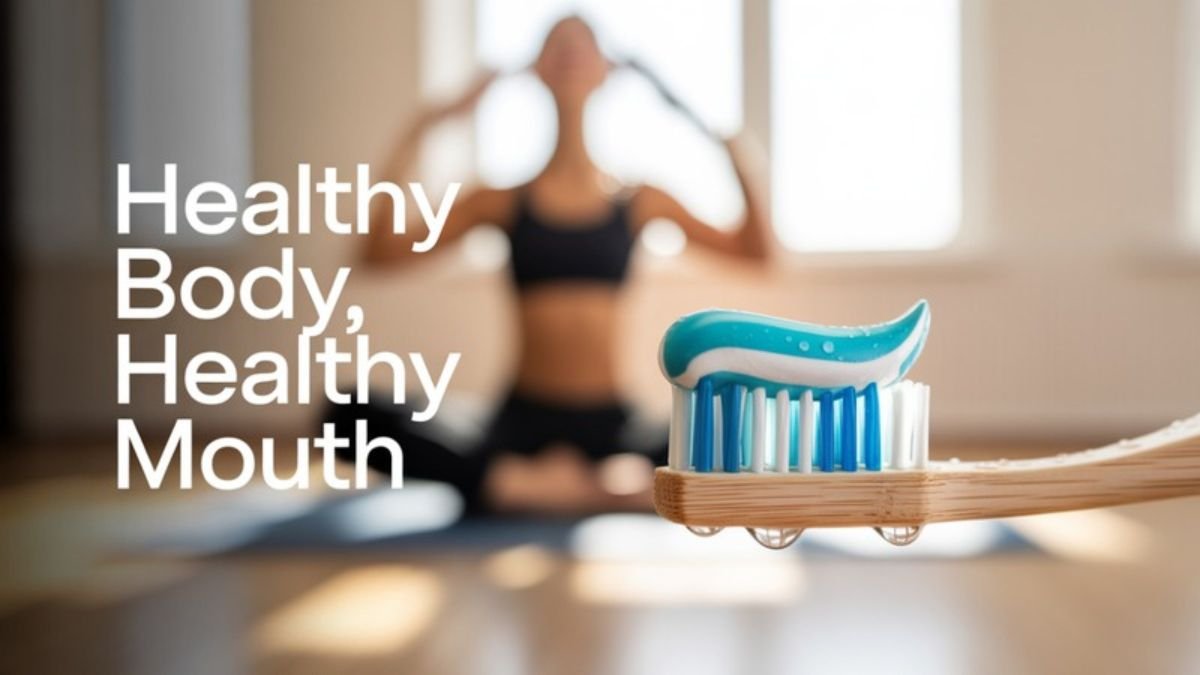Your mouth is not just a gateway for food and water, but it is also the beginning of your digestive system and respiratory system. The bacteria present in the mouth are often harmless, but if proper care is not taken, these bacteria can spread serious diseases throughout your body. A healthy mouth is the foundation of a healthy body. Let’s find out how oral hygiene protects not just your teeth but your entire body.
Mouth – The Gateway to the Body
Millions of bacteria are present in our mouth every day. Although most of them are harmless, the mouth is the gateway to the digestive system and respiratory system. If bacteria grow in the mouth or inflammation persists in the mouth, it can spread infection or inflammation to other parts of the body.
The role of good oral hygiene
Brushing and flossing is not just cleaning the teeth, it is the protection of the whole body. When you clean the mouth properly, bacteria remain in check. But if debris builds up in the mouth, tooth decay can occur and gum disease (such as periodontitis) can develop.
Certain medications affect the mouth
Many common medications—such as decongestants, antihistamines, pain relievers, diuretics, and antidepressants—can reduce the amount of saliva. Saliva helps keep the mouth clean, balance bacteria, and reduce acid. If saliva decreases, the risk of infection increases.
When oral health becomes a source of disease
Inflammation and bacterial growth in the mouth aren’t just limited to the teeth. These problems can lead to serious conditions, such as:
- Endocarditis: Bacteria in the mouth can enter the bloodstream and attack the lining of the heart (endocardium).
- Heart disease: Research has found that inflammation and bacteria in the mouth may increase the risk of heart disease, blockages, and stroke.
- Pregnancy complications: Periodontitis can lead to premature delivery and low birth weight babies.
- Pneumonia: Bacteria in the mouth can travel to the lungs and cause respiratory illnesses.
Diseases that affect oral health
Some diseases in your body directly affect oral health:
- Diabetes: It reduces the body’s ability to fight infection, making gum disease more likely. People who have gum disease also have difficulty controlling blood sugar.
- HIV/AIDS: People with this disease often have painful ulcers and sores in the mouth.
- Cancer: Cancer of the mouth and other organs (gastrointestinal tract, lung, breast, uterus, prostate) has been linked to gum disease.
- Alzheimer’s: As Alzheimer’s progresses, oral health also deteriorates.
- Sjögren’s syndrome: This is an immune disease that makes the mouth dry, increasing the risk of infection.
Tell your dentist everything
If you are suffering from any disease or are taking any medication, make sure to tell your dentist this information. This will help them take better care of you and identify oral diseases in time.
How to maintain oral health?
Your daily routine plays an important role in protecting your teeth and gums:
- Brush twice a day, for at least two minutes. Use a soft-bristled toothbrush and fluoride toothpaste.
- Floss daily or clean between the teeth with a water flosser.
- Avoid sweet and sticky foods.
- Change the toothbrush every 3–4 months, or when the bristles are worn out.
- Visit the dentist at least once a year for a check-up. Consult a periodontist if needed.
- Do not smoke or consume tobacco.
- If there are ulcers, bleeding, or pain in the mouth, consult a dentist immediately.
Oral hygiene = body protection
Oral hygiene is not just for whitening teeth — it is the foundation of your overall health. A clean and healthy mouth prevents infections in your body and gives you a long life.
Special advice for the elderly and patients
The elderly, children, and people suffering from chronic diseases should take special care in oral care. Because their immunity is low, any oral disease can quickly become serious for them.
Oral care — a guarantee of long life
Taking oral hygiene lightly can be a big mistake. Regular cleaning, balanced diet, and timely doctor’s visit — all these can make your life better, longer, and healthier.
Conclusion
Your mouth is a mirror of your health. Cleaning your teeth not only protects you from dental diseases, but also keeps your heart, lungs, and many other body parts healthy. So the next time you brush, don’t think you’re just whitening your teeth — you’re protecting your entire body. Make your oral health a priority today, because it can become your strongest armor.
